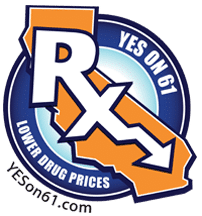 Santa Monica, CA — In the final days of the election campaign, and as the pharmaceutical industry expands its spending against Prop 61 to a record $126 million, Wall Street analysts’ private research on Proposition 61 finds that drug companies will take modest profit hits if it passes but that the industry will remain relatively unscathed.
Santa Monica, CA — In the final days of the election campaign, and as the pharmaceutical industry expands its spending against Prop 61 to a record $126 million, Wall Street analysts’ private research on Proposition 61 finds that drug companies will take modest profit hits if it passes but that the industry will remain relatively unscathed.
The comments, shared in confidential communications between analysts and investors, show that top financial analysts believe Prop 61’s measured approach to drug pricing controls will not force the drug companies to raise prices for others, as the industry has argued, but is dangerous because it will incite drug price revolutions in other states.
Brian Rye, an analyst for Bloomberg, stated that “drugmakers’ margins may be dented” if states pass laws like Proposition 61. Bloomberg summarized an RBC Dominion Securities analyst as saying, “Prop. 61’s impact on pharmaceutical companies’ financial performance may not be as lethal as feared.” Michael Yee of RBC Dominion Securities analysis commented on the bottom line: "we think a possible 2-3 percent earnings per share impact to large caps if this initiative were passed across all 50 states.”
“The Wall Street research shows that drug companies have spent $126 million against Prop 61 not so much because it will save California taxpayers billions now, but because it will embolden reform elsewhere and save consumers, employers and taxpayers more later through additional reforms,” said Jamie Court, President of Consumer Watchdog. “The top 8 drug company contributors against Prop 61 made $215 billion in profits last year and it is testament to the obscene levels of profitability in the pharmaceutical industry that Wall Street expects drug companies to come out just fine.”
The analyses by Wall Street and industry analysts flies in the face of the drug companies’ arguments against pro-consumer Proposition 61, which claim that the industry will be forced to raise prices on everyone if Prop 61 passes.
The implications of the drugmakers’ claim is that if the state of California benefits from the low drug prices paid by the VA, the industry’s profits will take such a hit they will be forced to raise prices on everyone else. Wall Street doesn’t see this in its analyses.
Other analysts noted that the main concern for the drug companies is the furthering of the anti-drug company movement. Goldman Sachs analyst Jamie Rubin said that the risks were “more headline than financial,” because propositions like the one in California will keep the political “spotlight” on drug pricing. Michael Yee of RBC said the main concern for drug companies was “emboldening 49 other states to look at these types of legislation to try to change prices.”
The statements echo the Yes on Proposition 61 campaign’s argument that Proposition 61 is the beginning of a nationwide movement to rein in greedy pharmaceutical companies. Populist hero Bernie Sanders has put his weight behind the initiative, highlighting the beginning of a larger battle against price-gouging committed by drug companies. Sanders will appear at rallies in Los Angeles and Sacramento Monday.
– 30 –
Paid for by Consumer Watchdog Campaign – Yes on 61, Major Funding by Yes on Prop 61, Californians for Lower Drug Prices, With Major Funding by AIDS Healthcare Foundation and California Nurses Association PAC. FPPC ID#1387641











